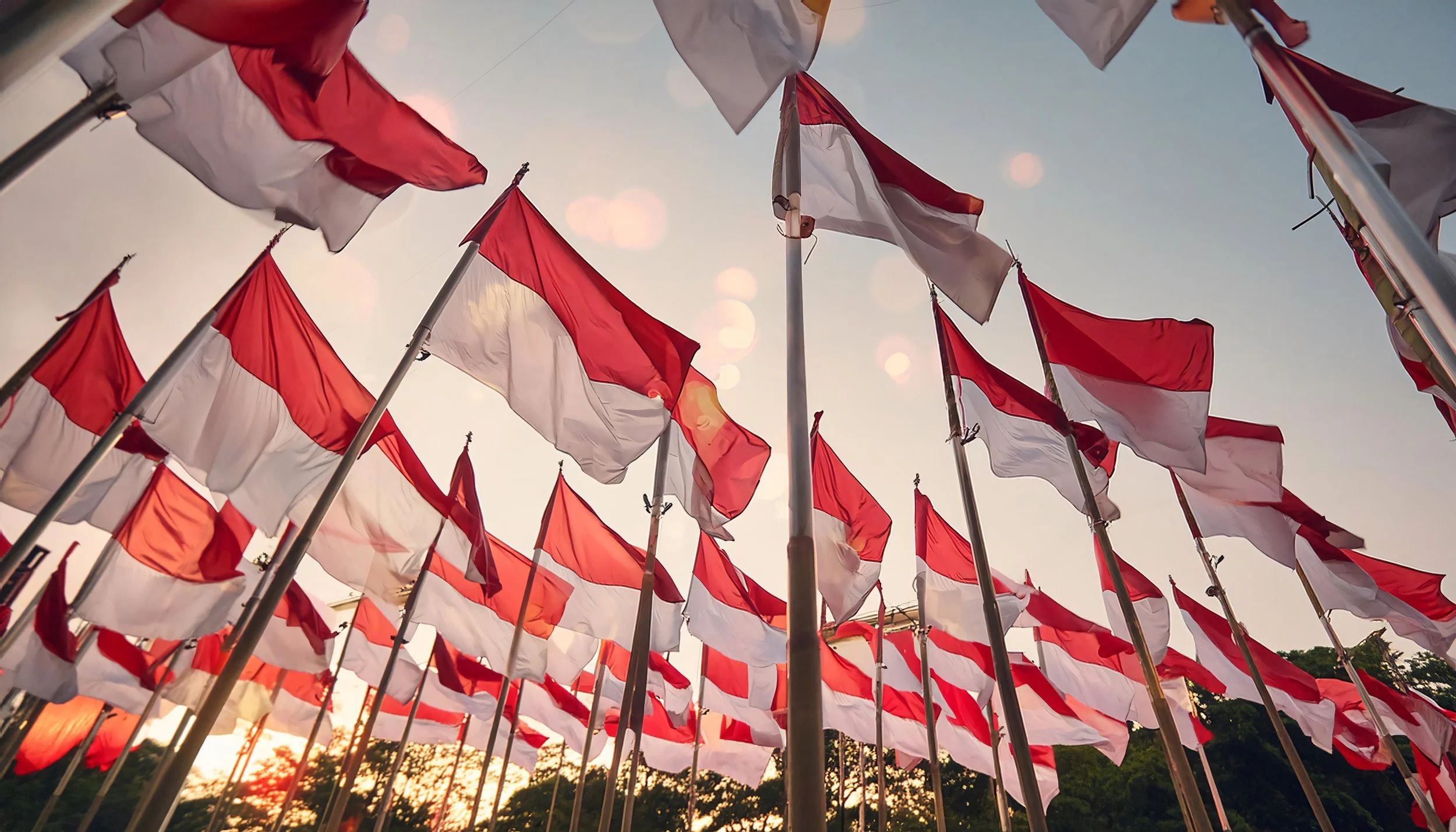August 17, 1945: The Day Indonesia Chose Freedom
What liberation means to a nation—and what it can teach us about personal freedom
photo by Muhamad Asyrof Muzakki
The Moment That Changed Everything
At exactly 10 AM on August 17, 1945, two men stepped onto a small porch in Jakarta. One held a piece of paper. The other, a microphone.
Sukarno's voice carried across the gathered crowd: "We, the people of Indonesia, hereby declare Indonesia's independence..."
With these words, spoken in less than two minutes, 270 million people claimed their freedom after 350 years of colonial rule.
But here's what makes this moment extraordinary: Indonesia didn't wait for permission. They didn't wait for the "right" conditions. They declared their freedom in the midst of chaos, uncertainty, and overwhelming odds.
The Story Behind "Merdeka!"
The path to that August morning began years earlier, in secret meetings and whispered conversations. Young Indonesian intellectuals like Sukarno and Mohammad Hatta had spent decades dreaming of this moment, often from prison cells where Dutch colonial authorities tried to silence their voices.
When Japan occupied Indonesia in 1942, everything changed. The Japanese, fighting their own war, promised eventual independence. But by August 1945, Japan was collapsing, and a power vacuum emerged.
This is when the story gets remarkable: Indonesian youth activists, impatient with their leaders' caution, literally kidnapped Sukarno and Hatta on August 16th. They brought them to a small house in Jakarta, demanding they declare independence immediately—not tomorrow, not next week, but now. ¹
The next morning, with no grand ceremony planned, no international witnesses, no guarantees of recognition, Sukarno read those historic words. The crowd erupted: "Merdeka! Merdeka!" Freedom! Freedom!
But perhaps the most moving part? Within hours, the word spread across thousands of islands by radio, word of mouth, and sheer collective longing. In villages from Aceh to Papua, people gathered to hear the news. Many wept. After 350 years, they had a voice.What 80 Years of Freedom Teaches Us
Eight decades later, Indonesia has become one of the world's most diverse democracies. From the rice terraces of Bali to the modern skylines of Jakarta, the spirit of "Merdeka" lives on.
But perhaps the most profound lesson isn't about nations—it's about the courage required for any authentic liberation.
True freedom requires a declaration. You can't think your way to liberation. At some point, like Indonesia in 1945, you must declare it—out loud, to yourself, to the world.
Freedom includes uncertainty. Indonesia's leaders had no guarantee of success. Personal liberation is the same—you step into the unknown with faith, not certainty.
Liberation is collective. Indonesia's freedom came through unity across difference. Your personal freedom impacts everyone around you—it gives others permission to be free too.
The Ripple Effect of One Brave Moment
What followed wasn't easy. It took four more years of struggle before international recognition came. There were setbacks, doubts, moments when it seemed impossible.
But something had shifted that morning that could never be undone. A collective awakening had happened—an entire archipelago had remembered who they really were beneath centuries of being told they belonged to someone else.
Today, when you walk through Indonesian markets or attend a Balinese ceremony, you can still feel echoes of that moment. There's a dignity, a quiet confidence that comes from a people who chose their own identity rather than accepting what was given to them.
What This Means for Us
Perhaps what Indonesia's story whispers to us is this: liberation often begins with a simple declaration in an ordinary moment, surrounded by uncertainty.
It doesn't require perfect conditions or complete preparation. Sometimes it just requires the courage to say "I am ready to be free" and trust that the path will reveal itself as you walk it.
The Indonesian youth who insisted on immediate independence didn't know how it would work out. Sukarno didn't have a detailed plan when he stepped onto that porch. They just knew that the time for waiting was over.
Your own "Merdeka" moment might be quieter—a decision whispered to yourself, a boundary finally set, a dream finally spoken out loud. But the essence is the same: claiming what was always yours.
Your Independence Day
Every August 17th, red and white flags flutter across Indonesia's 17,000 islands. Ceremonies honor those who chose courage over comfort, freedom over familiarity.
But you don't need to wait for a national holiday to declare your independence.
What are you ready to liberate yourself from?
The career that drains your soul?
The beliefs that keep you small?
The fear of what others might think?
The story that you're not ready, not worthy, not enough?
This week, declare your personal "Merdeka!"
Write it down. Say it out loud. Tell someone who matters.
Because here's what Indonesia's independence teaches us: Freedom isn't granted by others. It's claimed by you.
The conditions will never be perfect. The timing will never feel right. But somewhere inside you, just like in the hearts of Indonesia's founders, there's a voice saying "now."
That voice? That's your call to liberation.
Ready to answer that call?
Our November 3-26 Yoga Teacher Training is your opportunity to step into the freedom of sharing yoga—claiming your power as a teacher and guide. Like Indonesia 80 years ago, sometimes the most liberating thing you can do is declare yourself ready, even when you don't feel it yet. Learn more about our upcoming training here →
P.S. This August 17th, as red and white flags wave across Indonesia, ask yourself: What would you do if you truly believed in your own freedom? Start there.
What path called to you most strongly? —we read every response and often feature insights in our community stories section. What's your personal "Merdeka" moment? Share what you're ready to declare independence from—your courage might inspire others to choose freedom too.
Sources
Reid, Anthony (1974). The Indonesian National Revolution 1945-1950. Longman.

